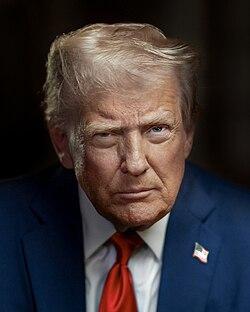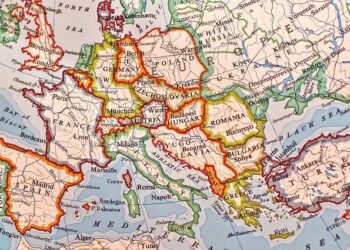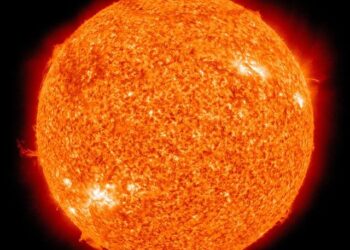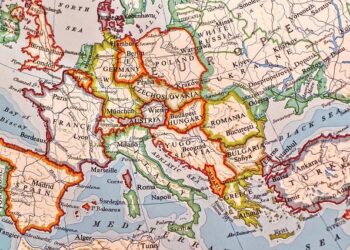In a significant geopolitical development, recent reports indicate that former U.S. President Donald Trump has suffered a setback in the strategic oil arena within America’s own backyard. Russia, under President Vladimir Putin’s leadership, has emerged as the leading trading partner of Venezuela’s embattled regime headed by Nicol√°s Maduro. This shift not only underscores Moscow’s growing influence in Latin America’s energy sector but also raises concerns about the United States’ diminishing leverage in a region long considered within its sphere of influence. The new dynamics highlight the complexities of global energy politics amid ongoing tensions between Washington and Moscow.
Trump Faces Setback as Russia Strengthens Grip on US Oil Markets
Russia’s expanding influence over the US oil markets has raised serious alarms about geopolitical shifts within the energy sector. Recent data suggests Moscow has successfully leveraged strategic alliances and supply chain tactics to tighten its control, a move seen by many analysts as a direct counter to US energy dominance. This development is particularly significant given the aggressive energy policies promoted during the Trump administration aimed at achieving American energy independence and boosting domestic production.
Meanwhile, Russia has also deepened its economic ties with Venezuela, becoming its primary trading partner and reinforcing Moscow’s foothold in Latin America. This growing economic corridor between Russia and Venezuela could further complicate US efforts to isolate regimes deemed unfriendly. Below is a snapshot comparison of Russia’s oil trade relations with Venezuela versus the US:
| Metrics | Russia – Venezuela | US – Venezuela |
|---|---|---|
| Trade Volume (Monthly) | 500,000 barrels | 10,000 barrels |
| Key Commodities | Crude Oil, Machinery | Humanitarian Supplies |
| Recent Agreements | Long-term Oil Supply Contract | None |
Putin Emerges as Venezuela’s Leading Trade Ally Amid US Rivalry
Russia’s strategic pivot to Venezuela has marked a significant shift in Latin American geopolitics, with Moscow now serving as the country’s principal trade ally. Amid ongoing US sanctions and diplomatic pressure aimed at restricting Nicol√°s Maduro’s regime, Russia has solidified its economic foothold by expanding energy cooperation, providing military aid, and boosting bilateral trade volumes. This growing alliance not only challenges Washington’s historical influence in its own backyard but also highlights Vladimir Putin’s successful maneuvering to secure vital energy resources and geopolitical leverage in the Western Hemisphere.
The transformation in trade dynamics is evident from recent statistics:
| Category | Russia-Venezuela (2023) | USA-Venezuela (2023) |
|---|---|---|
| Oil Exports (barrels/day) | 450,000 | 75,000 |
| Military Equipment Deliveries | 5 shipments | 0 (Sanctioned) |
| Trade Volume (USD billion) | 3.2 | 0.9 |
Key factors contributing to this development include:
- Energy collaboration: Russian firms have helped Venezuela stabilize its crude output and refine oil products despite years of turmoil.
- Energy collaboration: Russian firms have helped Venezuela stabilize its crude output and refine oil products despite years of turmoil.
- Military support: Russia’s delivery of military equipment has bolstered Venezuela’s defense capabilities amid increased regional tensions.
- Diplomatic backing: Moscow continues to provide political support for Maduro’s government in international forums, countering Western sanctions.
- Economic investment: Russian investments in infrastructure and energy sectors have contributed to Venezuela’s economic resilience.
- Enhanced regional energy collaboration: Strengthen cross-border pipelines and grid interconnectivity to ensure energy security.
- Innovation funding: Increase federal grants for emerging energy technologies tailored for Latin American markets.
- Market diversification: Encourage private US firms to expand operations to reduce reliance on Russian-Venezuelan trade corridors.
- Diplomatic pressure: Leverage international forums to isolate Russia’s economic maneuvers in the region.
<
Strategic Recommendations for Regaining US Energy Influence and Countering Russian Expansion
To counter Russia’s expanding influence in the Western Hemisphere, especially in Venezuela, the United States must prioritize a multifaceted energy strategy that strengthens regional partnerships while amplifying domestic production capacity. Reinvesting in critical infrastructure and boosting research in renewable alternatives can reduce dependence on foreign oil, thereby reclaiming leadership in the hemisphere’s energy markets. Additionally, forging deeper energy cooperation agreements with key Latin American allies will help create a resilient supply chain that stands firm against Kremlin-backed economic incursions.
Effective countermeasures also demand a blend of diplomatic and market-oriented actions. Implementing targeted sanctions on energy exports aligned with Russian interests, while simultaneously offering incentives for clean energy investments in vulnerable partner states, can gradually erode Moscow’s grip. Below is an outline of strategic focus areas the US could pursue:
| Strategy | Expected Impact |
|---|---|
| Infrastructure modernization | Increased US export capacity |
| Renewable energy incentives | Long-term market resilience |
| Sanctions enforcement | Weakened Russian economic foothold |
| Regional alliances | Strengthened geopolitical influence |
To Conclude
As the geopolitical dynamics in the energy sector continue to evolve, the reported shift in Venezuela’s primary trading partnership from the United States to Russia marks a significant development. With Russia solidifying its influence under President Vladimir Putin, questions arise about the future of U.S. energy diplomacy and its strategic interests in the Western Hemisphere. This emerging alliance between Moscow and Caracas underscores a changing landscape where global energy politics remain a critical factor in international relations. Observers will be watching closely to see how Washington responds to these shifting tides in the months ahead.
















